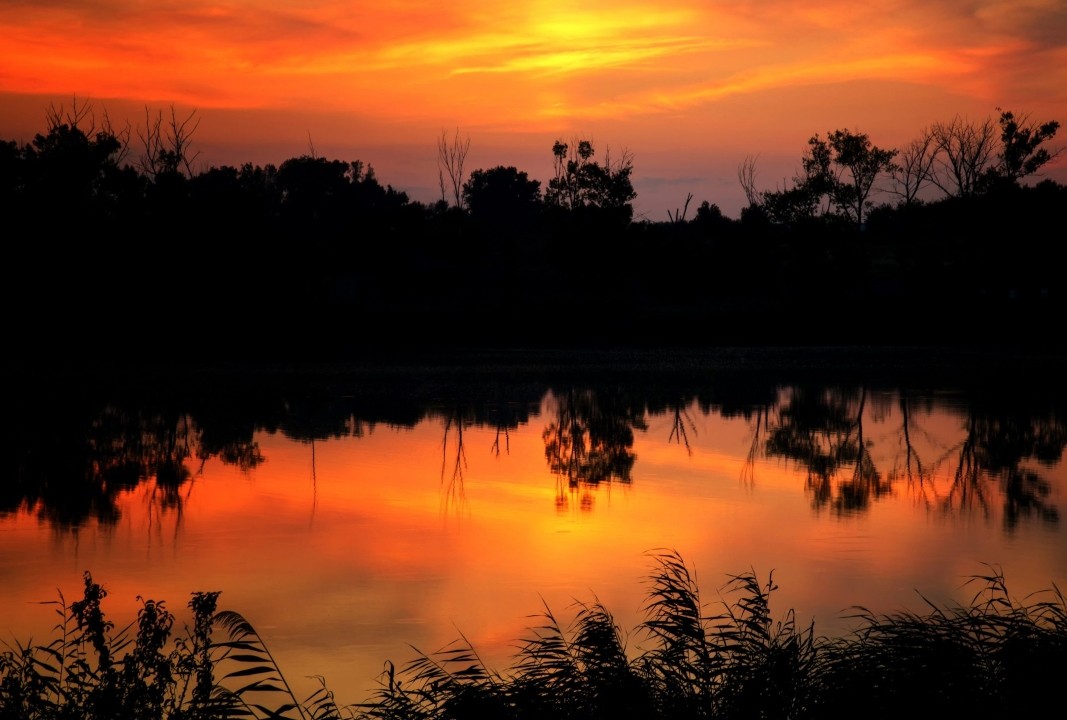The waterfowl population is dependent on the condition of the places where they spend the winter. Many of these places are part of the Natura 2000 protected areas network. According to latest data, there are endangered species in the world which are continuing to dwindle, facing a very real risk of extinction. The cause – wetland pollution. But that is not the only reason.
Drying, pollution and investment interests are among the principal factors impacting wetlands, Irina Mateeva from the Bulgarian Society for the Protection Birds (BSPB) said for BNR-Varna.

Humans pose a serious threat to the great cormorant colonies - a protected species - inhabiting the region of Lake Durankulak located in the northern portion of the Bulgarian Black Sea coast. In the spring of 2020 a BSPB team monitored the waterfowl in the region and established that the trees where 180 cormorant couples nested had been cut down at the height of nesting season for this species. As the trees were cut down the nests, as well as hundreds of eggs in an advanced stage of incubation and newly hatched chicks were all destroyed.
Human activity destroyed the great cormorant colony nesting in the region of Lake Durankulak after the trees where the birds nested were felled. The territory is on the very edge of the lake and there is much interest in its urbanization, explains Irina Mateeva:
“The owner wanted to cut down the forest and he didn’t care that there was a nesting colony there – eggs, nests and chicks. The cormorants moved to an island with trees and shrubs growing on it, but next year they will not be able to use this island. This means that the cormorants in the region of Lake Durankulak face a serious housing crisis. They have to find a quieter and more permanent place to raise their young.”
Irina Mateeva says that 5 hectares of dry grass and shrubs were burnt a year ago in the region of the protected area called Orolovo Plato (Eagles’ Plateau) near Lake Durankulak. What caused the fire is not known to this day. What is known is that there is a stated investment intention to build an intensive fish farm which, environmentalists say, spells problems for the region.

“Fortunately the fire did not take place during nesting season but when the reeds are burnt that deprives waterfowl of cover and they have nowhere to hide from predators. Significantly, the reeds at Lake Shabla were also burnt a year earlier. Other wetlands were also burnt in that same period – the former Straldzha swamp, the Dragoman swamp near Sofia. Most wetlands are protected areas, that is why I would like to urge the public not to start fires because they are essential to biodiversity – birds and other animal species. They are also territories which are the source of water for irrigation and drinking water, so it is not a good idea to set fire to them.”
Emilia Nikolova, BNR-Varna
Translated from the Bulgarian by Milena Daynova
Photos: bulgariatravel.orgFor 30 years two Bulgarian universities have been offering high-quality technical and engineering education, in French, degrees and diplomas that are recognized worldwide. That is why the lecturers are proud to say not a single one of their graduates..
Under the title "Fashion Through the Looking Glass of a Century: From the Mid-19th Century to the Mid-20th Century', the Archives State Agency is presenting an exhibition of over 120 photographs and original artefacts showing the evolution of clothing..
The number of vineyards in Bulgaria is falling dramatically, Atanas Vassilev, president of the National Association of Bulgarian Winegrowers, told BNR. " In the 1990s we were fourth in the world with 1.8 million hectares, but at the moment the..
In a series of articles, we are to tell you about the visas required for stay and transit through Bulgaria. You will also learn which are the countries..

+359 2 9336 661
